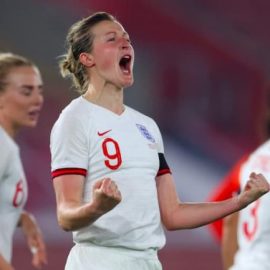Non-league clubs have never been the most stable of businesses, even in more financially stable times. Out of the 24 teams currently in the Blue Square Premier, no fewer than 15 have gone through some form of financial upheaval in the past ten years.
They were the lucky ones – in the past few years Halifax Town, Scarborough Athletic, Telford United, Canvey Island, Farnborough and Margate have disappeared from the Conference top flight for off-the-pitch reasons. Many other teams further down the pyramid have folded or gone to the brink.
But with the credit crunch in full swing, many clubs who overstretched even slightly are suddenly finding an urgent need to cut-back on costs. A recent investigation by the Non League Today found dozens of clubs living perilously close to the brink, and even in the Blue Square Premier there are several clubs who can reasonably be described as in crisis, with question marks over their future beyond the end of the season.
Northwich and Grays may have stabilised slightly in recent weeks but are still in the ‘at risk’ category. But it’s Weymouth, Lewes and Salisbury who are giving most cause for concern, with the Non League Today describing their respective situations as ‘critical’.
Weymouth: A classic example of boom and bust
Weymouth have fine non-league heritage, having spent 20 consecutive seasons in the Southern League (a pre-runner to the Conference) but the 90s and early noughties weren’t exactly kind to the Dorset club, after their relegation from the Conference.
The club spent many years bouncing around the league below the Conference before football journalist and lifelong Terra Ian Ridley took the club over, appointed Steve Claridge as manager and turned the club around from relegation contenders to promotion hopefuls.
But while Ridley brought the good times back to the south coast, what followed was a classic case of a club overreaching itself. Most of this is contained in Ridley’s fascinating account of his tenure in his book Floodlit Dreams, with one fact in particular standing out. Even with crowds of around 1,200 – high for any division in non-league – Weymouth were barely breaking even.
Ridley was forced out by local hotelier Martyn Harrison, who wildly overspent getting the club back into the Conference. In 2007, with the Terras in a play-off spot, Harrison suddenly announced the entire first-team squad would be placed on the transfer list to secure the future of the club, while manager Garry Hill also left the club.
The club then passed to Mel Bush, before Malcolm Curtis took over as chairman. It’s fair to say Curtis has hardly endeared himself to supporters – he’s currently embroiled in an ongoing row with assorted supporters’ clubs – and is actively looking for buyers. There’s a very real fear among Terras fans that the buyer could be Eddie Mitchell, owner of Dorchester Town, who has frequently talked of merging the two rivals.
Weymouth’s one saving grace could be their active Supporters’ Trust. Curtis recently offered them day-to-day running of the club, which they turned down because of several strings attached – not least the condition that Curtis would return as chair if there was the threat of the club having to enter administration.
With ongoing issues over both their current stadium and a proposed new ground, plus an increasingly desperate financial situation, supporters groups are rallying to save the club, in what has become almost an annual event. As Weymouth’s wikipedia page currently says: “On the 21st October 2008, club owner Malcolm Curtis announced he was set to step down and look to sell the club, because.. well it’s that time of year again.”
Salisbury City: Too much too soon
Salisbury’s rise in recent seasons has been positively meteoric. The club won the Southern Premier League in 2006, then beat Braintree in the Conference South playoff final in 2007 to clinch promotion to the Blue Square Premier. Last season, they were one of the division’s surprise packages, flirting briefly with the playoff, before a respectable mid-table finish.
But the Whites now find themselves in that classic position of stretching a little too far too quickly and in September they issued an urgent and rather unexpected press release saying they needed to raise £100,000 in fourteen days, although the exact need for this cash was never made entirely clear, other than to cover the costs of moving up to the Conference. What troubled supporters wasn’t as much the call for cash as the short time-scale.
Although the gap was plugged short-term, earlier this month the club announced that it urgently needed to cut its wage bill by 30 per cent. Star striker Matt Tubbs has since gone out on loan to Bournemouth, while fellow strikers Andy Sandell and Robbie Matthews have also headed out on loan to Aldershot and Havant & Waterlooville respectively.
In addition club captain Aaron Cook, Salisbury legend Scott Bartlett and Andy Robinson have all been placed on the transfer list, while winger Liam Feeney’s proposed move to Dagenham and Redbridge fell through last week. In short, the Whites are likely to be shorn of the majority of their star players and although they’re currently seven points clear of relegation, there’s a good chance their time in the non-league top flight will be a short one.
If there’s a consolation for the club, it’s that the loyal supporters seem to be largely behind the chairman Neville Beale, who has held regular fans forums. Beale has been honest that the club needs to cut costs if its to survive, and has rebudgeted with projected lower gate receipts (crowd numbers are down this year) for the rest of the season and has reassured supporters that the club won’t go into administration. Nonetheless, it could be a long second half on the season in Wiltshire.
Lewes: The club that didn’t want to be that successful
Even by the standards of strange football stories, Lewes’ decision to sack Steve King for winning the Conference South title stands out. King, according to the board at the time, had “at no time been asked to get us promotion”. And when King departed so did all the first team squad, bar one player. If 2008/09 was already looking to be a long season for Rooks fans, it’s recently got even longer.
King had presided over two promotions in four years at The Dripping Pan, while managing director Martin Elliott has bankrolled the club since 1999, taking them from the Ryman League Division 3 all the was to the Blue Square Premier. But it appears the Conference National is a step too far for the Sussex side.
Elliott has put Lewes up for sale and the club is desperately seeking a new backer, while several hopeful sponsorship opportunities have failed to materialise. The club’s financial situation is such that it couldn’t even afford to print programmes for last weekend’s game against Grays.
Meanwhile, attendances have fallen, possibly due to the sacking of King after winning the title, and the realisation that even avoiding relegation this season would be a massive achievement for the Rooks.
Lewes were already facing issues over their quaint Dripping Pan stadium, which needs substantial work if the club miraculously survive the drop and retain their Blue Square Premier position, and had cut their budget by 35% last Spring, but even that isn’t enough to stave off the current financial crisis engulfing the club.
Lewes, then, like so many before them, have found they’ve risen faster than their off-field finances and even though the board took drastic action to cut their cloth accordingly, their situation is common to many non-league teams at this level. With debts rumoured to be at tens of thousands of pounds, the question is not whether the club will stay up this season but if they’ll survive beyond that.
How to survive in the Conference
Lewes, Weymouth and Salisbury aren’t the only examples of clubs in crisis in the non-league pyramid – they just happen to be the most immediately relevant examples of BSP teams who’re struggling off the pitch.
Indeed, a look at the table sees plenty of other sides who’ve come close to going out of existence, or are still encountering serious problems. Yet chairmen still continue to take on ailing (or sometimes non-ailing) clubs at this level, convinced they’ve got a sleeping giant on their hands. Often that sleeping giant never wakes and the money men disappear, having failed where so many other have done so before hand, leaving supporters to sort out the mess.
Indeed, it’s no coincidence that the majority of the clubs towards the top of the table are those on a slightly more stable footing than those struggling elsewhere. Like Lewes and Salisbury, Histon have flown up the pyramid, but this appears to have been done with a careful budget and a refusal to pay silly wages.
Although there’s a question of how long a village team with low crowds can continue to sustain themselves at the top level (and perhaps even into the league), their upcoming televised FA Cup fixture at home to Leeds will give the Cambridgeshire side a nice payday, which will be crucial to them maintaining a challenge for the title.
One place below them are Nigel Clough’s Burton Albion, who are the very model of sensible, patient planning. Since their promotion to the Conference in 2002, the Brewers have slowly built on their position season-by-season. Rather than pay large amount of sums to ensure either survival or promotion, Burton have instead raised their targets year by year and have steadily gone from also-rans to genuine title contenders.
Burton’s stable model both on and off the pitch meant they were in prime position to capitalise on their FA Cup tie with Manchester United – and subsequent replay – three years ago. While many other clubs would have used the cash to pay off debts, Burton were able to invest the money into other areas.
Their improving position over the past few years speaks for itself. Last season the Brewers made the Conference playoffs for the first time in their history. This season they’ve topped the table and should be considered as genuine promotion contenders.
As the economic downturn continues to bite over the coming months, even years, expect cases such as the three highlighted above to become even more common. If clubs have any sense, they’ll be looking towards Burton as a model, not those teams who’ve spent heavily only to collapse under a mixture of debts and boardroom expectation.
Add Sportslens to your Google News Feed!






